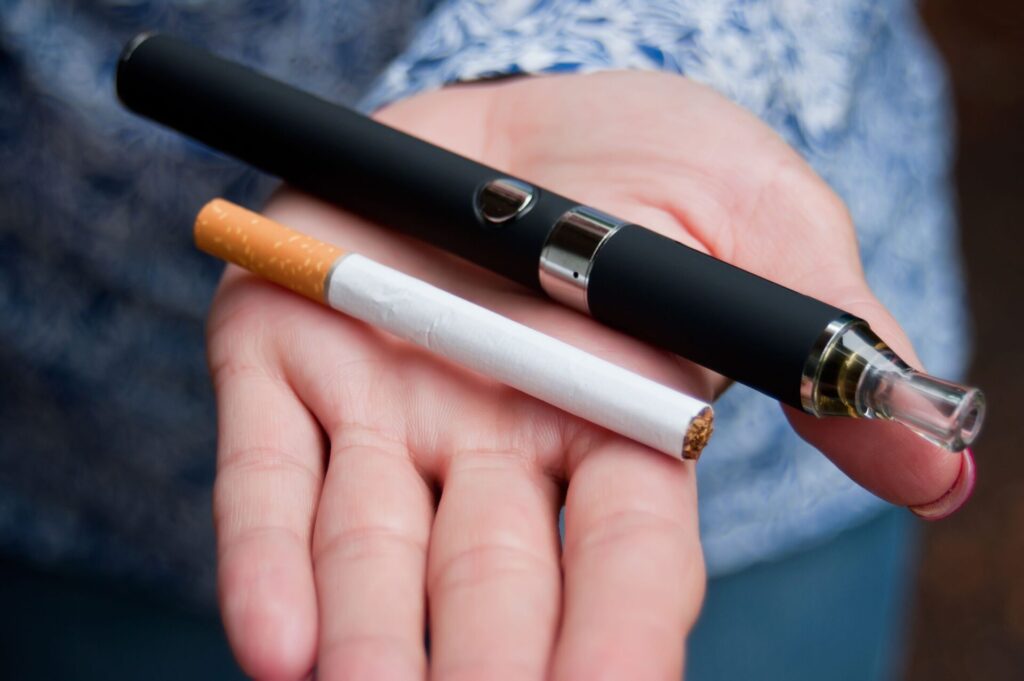
Amir Meghjee is a second-year 2nd entry nursing student. Prior to entering the nursing program, he completed three years of study in Kinesiology and Health Sciences. In his spare time, he enjoys playing ball hockey and giving back to the community by coaching youth sports.
As I exit from the York University subway station, I take a deep breath of fresh air and smell… strawberries? I look up ahead and see a group of students and a cloud of smoke above them. That’s where the smell is coming from, I realize, as I continue to my lecture. While vaping might make the air smell nice, it can have a lot of effects on your body. This post will explore what vaping is, its risks and side effects, how vaping compares to smoking and resources to help kick the habit.
What is vaping?
Vaping is the inhalation of vapours (which create the visible cloud of smoke) produced by an e-cigarette, vape pen or any other vaping product. A vape is made up of four parts: the battery, a heating element, a mouthpiece and a cartridge or tank. The cartridge or tank contains the vaping liquid or “vape juice,” which is heated into a vapour by the heating element and then inhaled. The vaping liquid is made up of numerous chemicals, contains nicotine and is usually flavoured.
What are the risks and side effects of vaping?
The primary side effect of vaping is nicotine dependence. Nicotine is a stimulant drug that is found in cigarettes and can cause you to temporarily feel good and relaxed. . It releases dopamine to the same parts of the brain as other addictive substances and can raise your blood pressure and heart rate. Substances found in vaping liquid can also impact your lung health.
Is vaping better than smoking cigarettes?
Neither option is healthy. Cigarettes produce a lot of chemicals that can cause cancer and are linked to heart and lung diseases. While vaping aerosol does not contain tar or carbon monoxide, some of the disease-causing chemicals in cigarettes, it still has nicotine and other components that can affect your health.
It’s important to keep in mind that vaping has not been approved as a therapy to stop smoking.
What resources are available to help me stop vaping?
If you or someone you know is thinking about quitting vaping, there are many resources available to help guide you.
Student Counselling, Health and Well-being (SCHW) at York offers free counselling services for students, which includes same-day online or in-person counselling, short-term counselling and support groups.
Quash is a free Canadian app developed by the Lung Health Foundation that helps you change your smoking and vaping habits, and you can tailor your plan to your needs.
The Smokers Helpline contains online resources to help you stop smoking or vaping, and Health 811 provides phone-based support. You can also speak with your doctor or primary care provider about how to stop vaping.
The Health Education and Promotion team often holds a “Vaping: Misconceptions & Safer Practices” workshop for students. You can find more information about their upcoming events and workshops in their calendar.
If you or someone you know is looking to learn more or speak to a healthcare professional, reach out to our Public Health Nurses and they’d be happy to support you!
References


